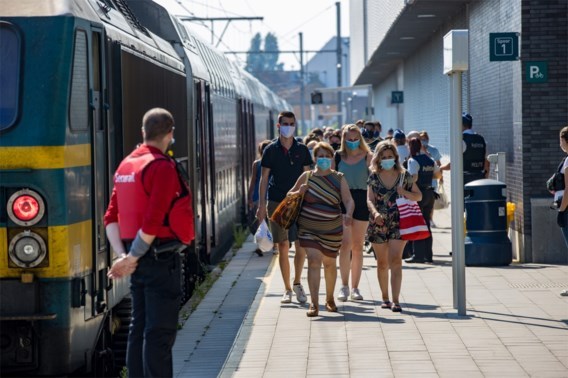Belgian rail company SNCB has agreed to implement several measures including extra police patrols and alert text messages to better manage the flow of tourists to the coast.
The decision on this ‘coastal plan’ came following a consultation between the governor of West-Flanders Carl Decaluwé and several coastal mayors after almost a year of ongoing friction over a possible solution for the congested transport to the coast.
“This is a great relief. The meeting with SNCB was very constructive. If we all work together, we will get through it,” said Oostende mayor Bart Tommelein on Twitter following the meeting, who added that the mediating role of Belgium’s Crisis Centre played a big role in all parties coming to an agreement.
Dit is een grote opluchting. De vergadering met de @NMBS verliep op een bijzonder constructieve wijze. Als we allemaal samenwerken dan geraken we er door. Met dank aan het Nationaal Crisiscentrum voor de deskundige leiding ?
— Bart Tommelein (@Barttommelein) March 24, 2021
During the previous summer and sunny weekends throughout the crisis year, reports of large crowds in coastal train stations and trains made the headlines on several occasions.
Related News
- Ghent police attacked whilst evacuating partying students from square
- Anger and disappointment: Belgium reacts to the 'Easter pause'
- One mayor goes it alone: terraces in Middelkerke, come what may
“The message has been clearly received and the SNCB will take various steps to ensure that the pressure on the trains will be kept under control,” Decaluwé told De Standaard.
SNCB is expected to launch a communication campaign to ask travellers to take the train to the coast as little as possible, whilst extra private security, stewards, student workers and police patrols will also be provided.
It has also promised to ensure that it will make enough empty trains available to and from the coastal towns on busy days to bring tourists back home, and it will clearly communicate the capacity of trains to the coast.
By Friday, all measures will be worked out in detail. On Monday, the various parties will meet again to go over everything and finalise the plans, and they will also discuss operational agreements to establish who is responsible for implementing the different measures.
Blankenberge has taken additional steps to prevent violations of coronavirus fighting measures by introducing a ban on alcohol on public property in the seaside town.
Lauren Walker
The Brussels Times

